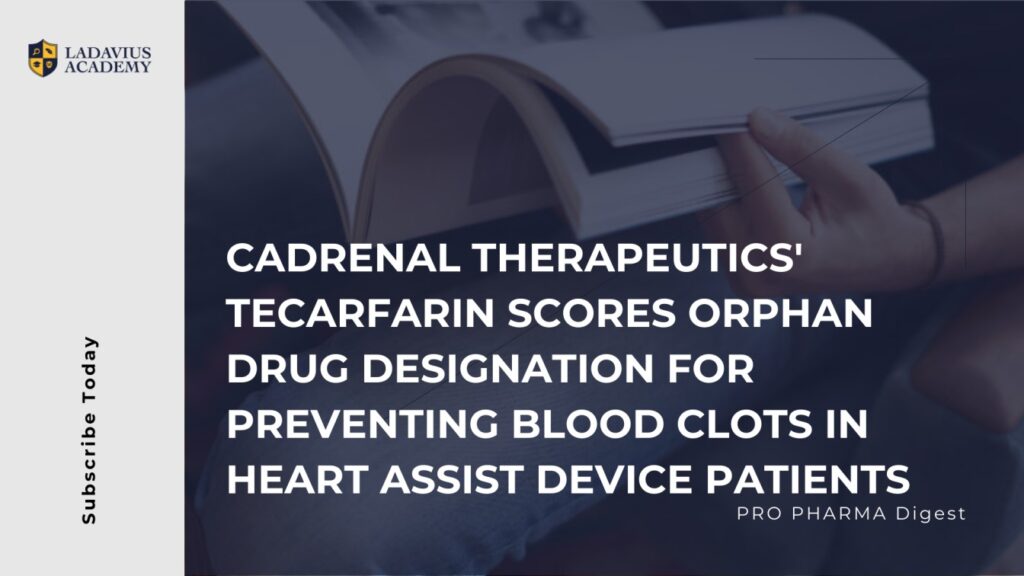Cadrenal Therapeutics, a biopharmaceutical company developing innovative blood thinners, recently announced a significant development for their late-stage drug Tecarfarin. The U.S. Food and Drug Administration (FDA) granted Orphan Drug Designation (ODD) to Tecarfarin for preventing blood clots in patients with implanted mechanical heart assist devices.
Challenges of Blood Clot Prevention in Heart Assist Device Patients
This designation applies specifically to patients reliant on devices like left ventricular assist devices (LVADs), right ventricular assist devices (RVADs), biventricular assist devices, and total artificial hearts. These devices offer lifesaving support for people with weakened hearts, but they come with a crucial challenge: blood clots. Blood clots can malfunction the device itself or break off and travel to other parts of the body, causing strokes or even death.
Unfortunately, current blood thinners have limitations for these patients. Direct oral anticoagulants (DOACs), like Eliquis, are not approved for this use due to a lack of conclusive evidence on their effectiveness. Warfarin, the most common blood thinner, requires constant monitoring and adjustments to maintain the right therapeutic range. This complexity can lead to increased risks of both clotting and bleeding events.
Tecarfarin: A Potential Solution
Tecarfarin’s potential lies in addressing these shortcomings. Designed for a different metabolic pathway than warfarin, Tecarfarin offers the promise of a more effective and manageable blood clot prevention option for patients with heart assist devices.
Benefits of Orphan Drug Designation for Tecarfarin
The Orphan Drug Designation from the FDA is a crucial step forward for Cadrenal Therapeutics and this patient population. This designation provides several advantages for the company:
- Financial incentives: The ODD program offers incentives to encourage the development of treatments for rare diseases, which includes blood clot prevention for heart assist device patients.
- Streamlined development process: The FDA provides assistance to ODD recipients, potentially expediting the clinical trial and approval process for Tecarfarin.
- Reduced development costs: Tax credits for specific clinical research and a waived application user fee can significantly reduce the financial burden of bringing Tecarfarin to market.
- Market exclusivity: If approved by the FDA, Tecarfarin would benefit from seven years of market exclusivity, offering Cadrenal a period of commercial advantage to recoup development costs and ensure patient access to this potentially life-saving treatment.
Tecarfarin: Addressing Unmet Needs in Blood Clot Prevention
Beyond the specific use for heart assist device patients, Cadrenal Therapeutics is exploring the potential of Tecarfarin for addressing other unmet needs in blood clot prevention. This news is a beacon of hope for patients struggling with the limitations of current blood thinners. Tecarfarin’s unique design holds promise for a safer and more effective approach to preventing blood clots in this patient population.
Posted April 2024.
Subscribe to our newsletter
Personalised by your preferences, subscribe to our newsletters to get the best of the Pharmaceutical Industry news in your inbox.
